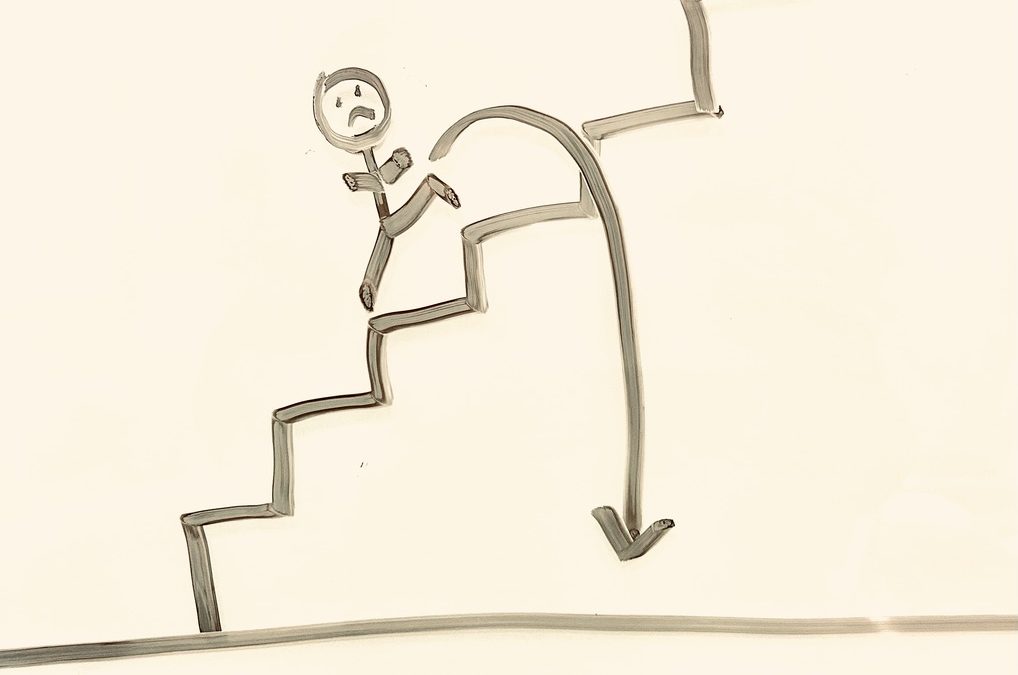In short, self sabotage is the art of screwing yourself over. Why would anyone do such a thing? Interestingly, you are usually the one who gets in the way of your own self, of your own goals and of your own dreams. This blog will speak to what self-sabotage is and how to keep it from interfering in your professional life.
What is Self-Sabotage?
Self sabotage is the result of self inflicted, subconscious or conscious, actions or thoughts that derail your success. Self-sabotage happens when you know exactly what your goals or vision are for your life, but you take actions that are in complete opposition to these things.
This makes me think of a conversation with a young person many years ago. She had worked for months on achieving a personal goal and was near final completion. Nearly a week before the goal was accomplished, she engaged in a behavior that completely derailed and destroyed her chances of leveling up. She knowingly engaged in a negative behavior which was so far off from the quality of character she had built over the past year. She had self-sabotaged. I was angry, disappointed and hurt at her lack of follow through. When the dust had settled, we had a sit down conversation. I could only bring myself to ask one question: “Why?”
How Does Self-Sabotage Work?
She proceeded to draw the following: a side view of stairs with a stick figure almost to the top; then an arrow pointing downward off the stairs- indicating the stick figure jumping off the stairs and downward towards the ground.
She explained “The higher up you go, the better things get. You are meeting goals and living a life you didn’t know you could ever have. But when you look down, you see how high you are. And you’re still going up. The higher up you go, the harder you can fall. You can either jump now and the fall hurts less, or have a break down after going higher and not being able to keep up with all you’ve done….It’s too much pressure.”
Why do we Self-Sabotage?
I was stunned. The higher up you go, the harder you fall? Then it hit me, it made sense. Why does a recovered addict relapse after successfully completing a rehab program? Why does that woman get out of a good relationship and claim “it wasn’t a good fit”? Why doesn’t he apply for the higher job position even when his colleagues are begging him to? Why do people pull out of their chosen career path after they fail a board exam? Why don’t your open up our own business?
Fear turned inward becomes our kryptonite. The negative thoughts surrounding all the different ways you can fail will slowly terminate the spark that’s required to generate ideas, movement and growth. Yes, it’s scary to think of failure, but what if you succeed?
How to Stop Self-Sabotaging
It’s important to recognize self-sabotaging behaviors like procrastination, making excuses, and analysis paralysis. Here are some ways take steps to address self-sabotage:
- Take a look at the root causes of the behavior- does it happen when you’re scared? Overworked? Stressed? Fearful of the future?
- Challenge any negative self-talk and limiting beliefs like “I’m not good enough” or “I’ll never be able to do this” and shift it to something more accurate, kind and helpful.
- Set realistic goals- be sure your goals are SMART- specific, measurable, achievable, relevant, and time-bound.
- Get help and support from a counselor or close friend or family member.
- Take action. It doesn’t have to be perfect. Start somewhere. Set baby goals and celebrate the baby victories. Small steps, lead to big changes.
By doing so, you can gain greater self-awareness, develop healthier coping strategies, and make progress towards achieving your goals and living a fulfilled life.

